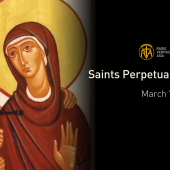The Paradox of Love

December 27, Wednesday, Feast of Saint John, Apostle and evangelist
Daily Readings: First reading: 1Jn 1: 1-4; Gospel: John 20: 2-8
There are two kinds of martyrdom: (a) red martyrdom and (b) white martyrdom. Red martyrdom involves shedding one’s blood for the sake of one’s belief in Jesus. White martyrdom involves undergoing a lot of suffering and self-denial while living because of one’s faith in Jesus.
The word martyrdom comes from the Latin root 'mrtus' which means ‘death’. St. John was such a person. Among all the 12 apostles, he is the only one who did not have the red martyrdom, while all the other apostles were killed in one way or another. St. John lived to the ripened age of 100.
Though he did not seem to have undergone physical torture as such for the sake of Christ, his life was one of constant self-denial. We are all aware that he is the apostle of love. He was a beloved disciple of Jesus. His gospel as well as his letters have a lot of references to love. It seems that till the end of life, whomever he met, he told them, “God is love. Love others as Christ loves you.” This was his simple and straightforward message.
Thomas Merton was eloquent when he said, “Man’s greatest dignity, his most essential and peculiar power, and the most intimate secret of his humanity is his capacity to love.
Love is a paradox. On the one hand, it makes us empty of ourselves, but on the other, through the very same process, it makes us find our true selves. On the one hand, love invites us to place the welfare of others first, but on the other, it helps us discover our own welfare. On the other hand, love invites us to lose all that we are, but on the other hand, it helps us to find all that God has given us.
It is this paradox of love that many don’t understand, and that is why it is very difficult to put love into practice. May the life of St. John inspire us to be people of love.
Radio Veritas Asia (RVA), a media platform of the Catholic Church, aims to share Christ. RVA started in 1969 as a continental Catholic radio station to serve Asian countries in their respective local language, thus earning the tag “the Voice of Asian Christianity.” Responding to the emerging context, RVA embraced media platforms to connect with the global Asian audience via its 21 language websites and various social media platforms.














